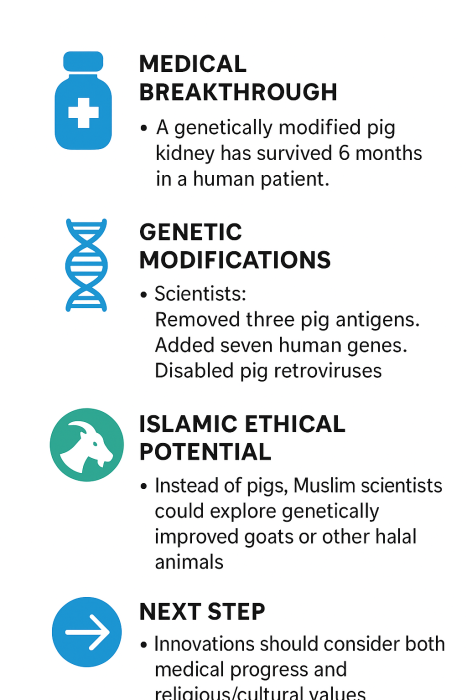NSU and FUI Vital Collaboration on Self-Reliance in Medical Technology - First Indigenous Product Uroflowmeter
Posted 1 year ago
A partnership between The National Skills University Islamabad (NSU) and Foundation University School of Health Sciences Islamabad has led to the fabrication and development of an indigenous uroflowmeter that will undergo clinical trials in the coming months. This collaborative effort toward self-reliance in healthcare technology by designing, developing, and fabricating indigenous biomedical equipment is unique in the country. Several other products and equipment fabrication and development are in the pipeline under the guidance of Prof. Dr. Muhammad Mukhtar, Vice Chancellor of the National Skills University Islamabad, a well-renowned biomedical technologist, and Prof. Dr. Khalid Farouk, clinical scientist.
This collaboration, marked by the recent signing of a Letter of Understanding (LOU), has launched a bold initiative to design and fabricate essential urological equipment. The first of these, a uroflowmeter, has already completed the preliminary stages of development. This device, which measures urine flow to diagnose urogenital issues, holds promise for early diagnosis and timely interventions in numerous urological conditions.
The LOU signing ceremony in the Foundation University Islamabad Campus symbolized an inspiring new chapter in Pakistan's biomedical landscape. Prof. Dr. Muhammad Mukhtar, Vice Chancellor of NSU, represented NSU with Maj. Gen. (R) Imran Fazl, Director of the Foundation University, School of Health Sciences, on behalf of Maj. Gen. Muhammad Kaleem Asif, Rector of Foundation University Islamabad. The event was attended by an impressive roster of clinicians, primarily urologists from Pakistan. In this assembly of technical and clinical experts, one could sense a shared vision and palpable anticipation for the joint venture.
As Pakistan's healthcare system, like other nations, confronts a rising prevalence of urological conditions, the development of a uroflowmeter and similar diagnostic tools within our borders is timely. Uroflowmetry, a procedure that tracks the flow rate of urine, is a critical diagnostic tool in the early identification of issues such as prostate disorders, bladder dysfunction, and other urogenital ailments. The partnership between NSU and FUSH reflects a rare but increasingly essential collaboration between technologists and clinicians. Under this joint initiative, medical technology diagnostic and non-diagnostic equipment will not only be fabricated domestically but also explicitly tailored to meet the needs of the Pakistani healthcare system, potentially reducing reliance on costly imports while driving healthcare innovation.
According to Prof. Dr. Mukhtar, this collaboration represents a historic step forward for Pakistan's healthcare sector. He emphasized the groundbreaking nature of the partnership, uniting the expertise of technology and clinical domains to benefit humanity directly. Dr. Mukhtar, a globally recognized biomedical scientist, credited Prof. Dr. Khalid Farouk, Head of Urology at FUSH, and his team for their substantial contributions to the project. The partnership brings together an impressive cadre of experts, including Mr. Abdul Kashif Janjua, leading the project from NSU's Department of Electrical Engineering Technology under the department head, Prof. Dr. Ishtiaq Ahmad. Together, this team reflects a synergy between scientific rigor and clinical insight that is rarely seen but urgently needed.
This collaboration is a significant step toward unmet and critical need within Pakistan's healthcare sector for sustained, interdisciplinary teamwork between academic institutions, researchers, and clinicians to address the nation's pressing healthcare challenges. Notable attendees at the ceremony emphasized the broader potential of this collaboration. Maj. Gen. (R) Imran Fazl and other esteemed professors and clinicians lauded the initiative as a model for future alliances, underscoring the value of merging technological and medical expertise.
One voice that stood out was Dr. Mohammad Ayaz Khan, Consultant Urologist at Shifa International Hospital Islamabad, who advocated for an integrated approach to research and development within Pakistan's medical field. By facilitating interaction among the country's biomedical scientists and clinicians, Khan argued, Pakistan could move forward in producing healthcare solutions tailored to its unique demographic needs and constraints. The collaboration between NSU and FUSH could, therefore, be seen as a potential blueprint for national healthcare innovation.
Further underscoring the potential of this endeavor, several clinical studies were presented by the team from FUSH, including a promising exploration of hydrogen peroxide applications in the treatment of bladder clots, presented by Dr. Khalid Farouk and his team, including Dr. Lubaba Noor, Dr. Asher Masood, and Dr. Sundas Ishtiaq. The depth of these studies illustrated the impact of clinical research on medical practice, spurring the conversation on the profound implications of domestically-driven medical innovation.
As the ceremony concluded with the distribution of shields and the fostering of professional connections, it became clear that the importance of this initiative extends far beyond the uroflowmeter itself. It is emblematic of a larger vision in which Pakistan's institutions take collective strides toward an era of self-sufficiency in healthcare technology. This joint venture between NSU and FUSH is not just a collaboration; it is a call to action, a signal to other universities, research institutions, and private industries across Pakistan to pursue similar alliances.
Such efforts are indispensable in a time when technological and scientific self-sufficiency is essential to national resilience. The uroflowmeter may be only the beginning. If supported and expanded upon, this partnership has the potential to catalyze a healthcare technology revolution in Pakistan, advancing local solutions for local challenges and ensuring that Pakistan is no longer merely a consumer but a creator of cutting-edge medical technology.





